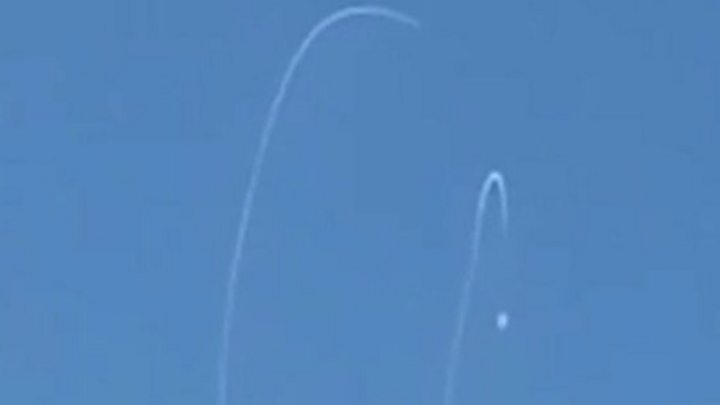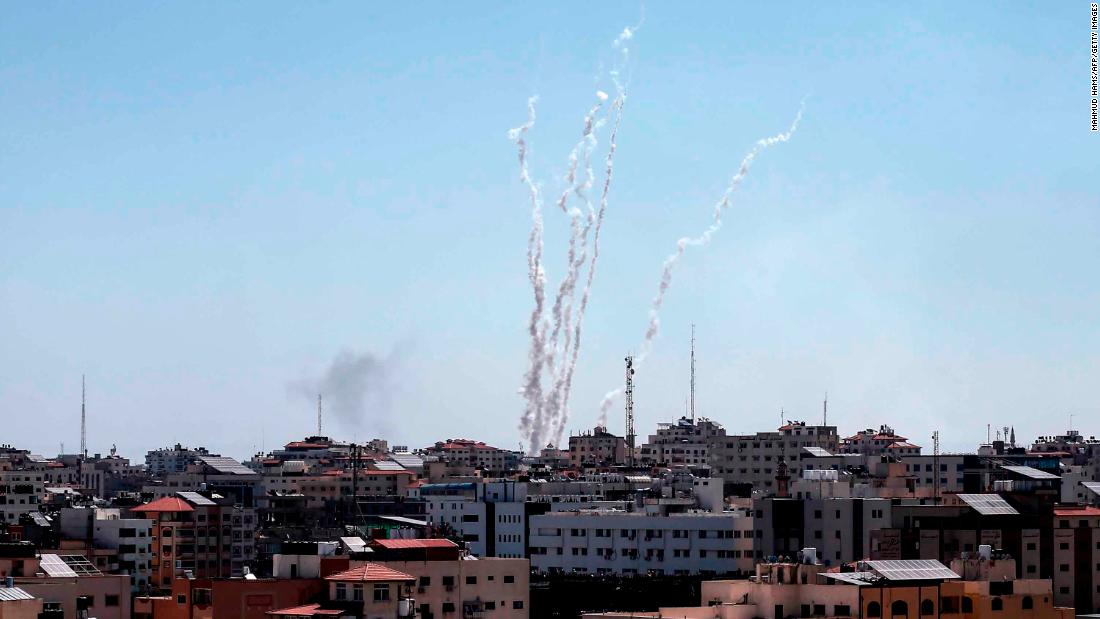
North Korea fired off a few projectiles on Friday night — setting off a chaotic half day where it seemed the sputtering relationships between Washington, Seoul, and Pyongyang could come crashing down.
South Korea’s military initially said that its northern neighbor launched a short-range “missile” into the Sea of Japan from Wonsan in the country’s east between 9:06 am and 9:27 am local time on Saturday. Shortly after, though, Seoul revised its analysis to say Pyongyang set off “several projectiles,” thereby downgrading the kind of weapons used. It remains unclear how many projectiles North Korea fired or what kind were shot, although what is certain is they didn’t travel more than about 120 miles.
The specifics matter here. The United States and North Korea are engaged in months-long negotiations over how to dismantle Pyongyang’s nuclear arsenal. President Donald Trump has repeatedly said that he’s fine with the protracted talks as long as North Korean leader Kim Jong Un doesn’t test any more missiles, especially ones that can reach the US carrying a nuclear warhead. Kim’s last test of that kind came in November 2017.
But should Kim conduct another long range missile test, it’s conceivable Trump and aides around him — particularly National Security Adviser John Bolton — could decide diplomacy has failed and revert back to the “fire and fury” threats of 2017.
People familiar with the scene inside the White House Friday night told me there was some fear about that possibility.
“Trump is pissed off, like Kim fucked him over,” a source told me anonymously shortly after Bolton briefed the president. Senior aides were “urging him not to tweet anything” until he spoke with South Korean President Moon Jae-in, who leads his own talks with North Korea to improve ties on the peninsula. US officials, including Secretary of State Mike Pompeo, spoke to their South Korean counterparts.
Many experts didn’t think North Korea’s show of force crossed Trump’s red line, but they said the danger lied in how the president would react to the news.
“The talks now depend on whether the president responds proportionately to the launches, or instead decides to overreact or ignore them,” Adam Mount, an expert on North Korea’s nuclear program at the Federation of American Scientists, told me. “It’s not clear this president is willing or able to discern facts about the projectiles fired.”
But Friday night and early Saturday morning came and went without any reaction from the president — until 9:42 am.
Anything in this very interesting world is possible, but I believe that Kim Jong Un fully realizes the great economic potential of North Korea, & will do nothing to interfere or end it. He also knows that I am with him & does not want to break his promise to me. Deal will happen!
— Donald J. Trump (@realDonaldTrump) May 4, 2019
So it seems that the worst was avoided, although the episode seemingly left a mark on the president. “Trump is not happy, but not flipping out like last night,” one person familiar with the situation told me.
The question now is why North Korea would risk angering Trump by firing off a few “projectiles.” There are two main hypotheses.
First, Kim hoped that his talks with the US and South Korea would’ve paid off by now, but that hasn’t happened yet.
In February, Trump and Kim met in Vietnam to make a deal on ending North Korea’s nuclear and missile programs, but the summit ended early as both sides made demands the other couldn’t accept. Since then talks have all but stalled and there has been little sign of progress.
“It sounds like Kim wants Trump to get moving on US-North Korea issues, and he’s not being shy about it,” Grace Liu, a nuclear expert at the Middlebury Institute of International Studies, told me.
Second, the US and South Korea are engaged in a military exercise, although they scaled it down to avoid any tensions with the North. Pyongyang considers these drills as nothing short of a thinly veiled prelude to invasion and has historically reacted with shows of force. It’s very possible, then, that launching a few short-range projectiles was just another of those signs of displeasure.
That means Friday night’s perilous moment surely wasn’t meant as an incitement for war. The problem is that incitement may come soon.
Pyongyang says it will give Washington by the end of 2019 to strike a nuclear deal or it may find other ways to get America to comply. Experts I spoke to say that means the window for a negotiated agreement is closing fast — which in turn implies future North Korean provocations might be a lot more troubling still.
https://www.vox.com/world/2019/5/4/18529307/north-korea-projectile-missile-trump-kim
2019-05-04 16:14:23Z
52780285346702



